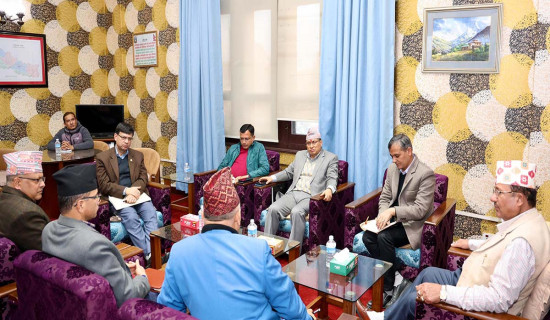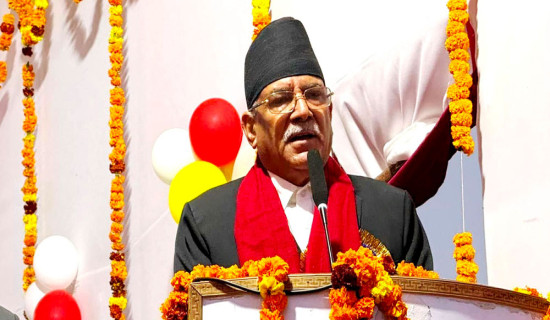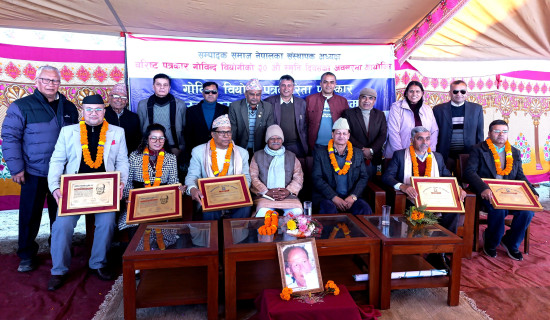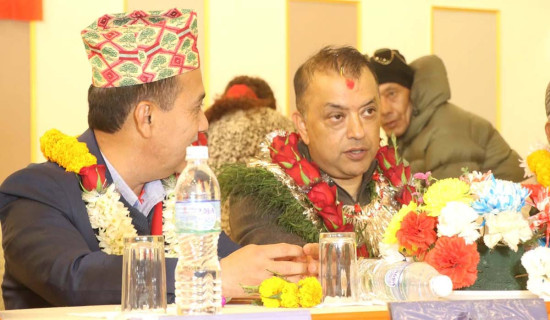- Sunday, 18 January 2026
Ordeal for citizenship adds miseries to street children
By A Staff Reporter, Kathmandu,
Dec. 30: Rajesh
Thakuri, now a security guard at a private school in Kathmandu, does not know
his exact age. Even his surname Thakuri is not inherited from his parents. His
troubled, abusive early childhood landed him in the streets of Kathmandu,
depriving him of a fixed permanent address. Today, he is paying the price of
his ill fate, as the authorities tell him to show evidence of his address in
order to get the citizenship certificate, which is a must to get a job or join government
service.
"I
must have been around 5 or 6 years old when I used to roam in Ratna Park all
alone. My father was a drunkard and being unbale to tolerate torture from her
drunk husband, my mother left home. A couple had later adopted me, but things
did not go well, and I again landed in the streets," said Rajesh, whose
surname comes from the family that had briefly sheltered him.
According
to Kabita Rajya Shah, Resource Executive of SathSath, an organisation that
helps homeless kids to obtain birth certificates and citizenship certificates
by preparing legal documents, she saw Rajesh in Thamel, and later in Basantapur
over a decade ago.
"In
those days, there were lots of such street children in Kathmandu. Only a few of
them were lucky enough to grow up in the child care centres. This means the
others could not produce legal documents when they needed citizenship,” she
added.
According
to Rasana Dhakal, a social activist who works for the rights of women and
children, the street kids of yesteryears, who have become adults now, are
struggling to obtain the citizenship certificates.
"Today,
things are relatively better for homeless kids as the authority takes action;
they are sent to the child care centres. We cannot say this is happening cent
per cent even now, but comparatively we see fewer street kids these days,"
Dhakal said, adding that the likes of Rajesh have nobody around to attest to
their address.
It
is not that Rajesh, who now seems to be in his late 20s, never came across
shelter homes. But the carefree, anarchic lifestyle back in the street made him
restless.
"It
was very strict in those organisations, and the boys like us used to run away
from there. We would also fear punishment, elders used to punish us for
committing a minor mistake," Rajesh recalls.
Asha
Rai (name changed), whose mother died when she was a second grader, has an
equally painful tale to share. She was also in the streets of Kathmandu on and
off. "I developed many wrong habits when I was in the streets. I was sent
to child care centres or hostels, where I could study, but that was easier said
than done," she said.
Rai's
mother had married thrice. She was born out of wedlock with her second husband.
The entire family was drenched in the habit of drinking alcohol. Rai stated
that the wrong habit ruined everything.
"Now
I understand that many things went wrong because people then did not take
sensible steps. In our community or neighbourhood, drinking was so common that
even my mother died of illnesses caused by her drinking habit," she said.
Her
difficult childhood has also taken a toll on her psychological health.
Considering her helpless situation, SathSath has hired her as a paid staff
member.
"She
has been working here as well as undergoing psychological treatment. The issue
of citizenship has also left those children restless. They are quite worried
for their future," said Shah.
Meanwhile,
Devi Prasad Dotel, an officer at National Children Rights Committee (NCRC),
stated that there cannot be statelessness for any kid.
"Even
if one is abandoned by the family, there must be someone to verify their identity.
On that basis, the children should be provided with the citizenship certificate,"
he elaborated.
As
per its record, the National Centre for Children at Risk (Balbalika Khoj Talash
Kendra), which has its branches across the country except for Mustang district,
handed over around 4,500 children to their families in the last 16 years.
Nearly 1,500 children were sent to shelter homes.
Dotel
stated that there are a few organisations which prepare legal documents of the homeless
children. SathSath, meanwhile, reported that it is struggling to prepare documents
of a dozen street kids as they have no sources to speak for them.
"We
are preparing to move the court to fight for the citizenship of Rajesh and a
few other children like him. As they're adults now, even the NCRC doesn't take
responsibility for them," said Shah.






-original-thumb.jpg)
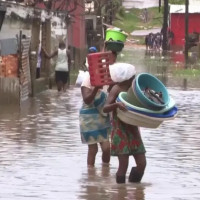
-square-thumb.jpg)
